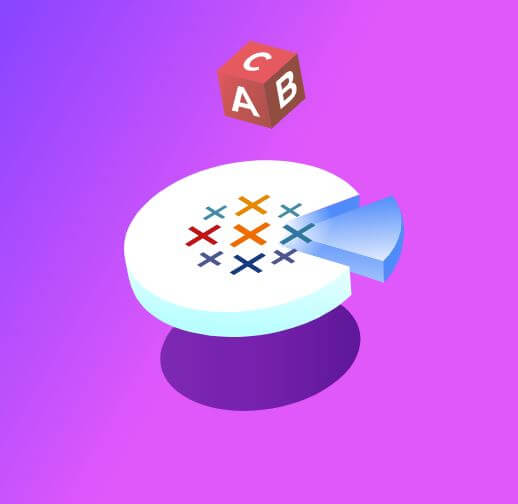Even in the age of AI, human talent still matters. More than ever, businesses need skilled people to make decisions, execute plans, and perform tasks that lead to sustained success.
That is why the World Economic Forum (WEF) exhorts companies to invest in preemptive skill training and why professionals need to develop relevant business skills to thrive in tomorrow’s workplaces.
The question is, which specific business skills deliver the most benefits today and for the years ahead?
As things stand, there’s already a digital skills gap that threatens the sustainability of many industries. According to the Society of Human Resource Management (SHRM), 75% of recruiters report difficulties in finding the right skills in candidates for open job positions.
Making matters worse, many organizations also overlook soft skills that help improve overall corporate performance, as proven by numerous research.
One thing is clear. The right business skills, including the effective use of online community-building platforms, provide a strategic advantage for organizations while enabling professionals to move their careers forward.

What are business skills?
Business skills refer to learned abilities and practical knowledge that help you solve problems, perform tasks, or create value for your team or organization.
Often, business skills provide an uplift to an organization’s performance in terms of profitability, productivity, or efficiency. They can be further categorized as soft and hard skills. Compared to traits (which relate to personality, mindset, or behavior), business skills can be learned more easily.
Soft skills are informal, people-centric abilities that are acquired and developed over a lifetime. Meanwhile, hard skills pertain to formal, specialized, or technical know-how that is generally learned via training courses, workshops, apprenticeships, and academic institutions.
Based on studies and surveys conducted by LinkedIn, WEF, and other organizations, here are the top business skills that can help you thrive in any workplace environment, regardless of your role.
Want to learn more?
Take your soft skills to the next level with our comprehensive (and free) ebook!
Soft skills
1. Critical thinking
In a world flooded by data, only professionals with the ability to rise above the noise, curate information, and generate useful insight can make the right business decisions.
Critical thinking is the key to making sound judgments, taking appropriate actions, and finding better solutions. This skill is crucial in cost analysis and strategy formulation, among many related fields.
2. Problem solving
Technology helps solve many problems, but there’s still plenty to keep companies busy. In any industry or era, your problem-solving ability is a key element of frameworks such as 5S and Lean Six Sigma.
|
GoSkills Lean Six Sigma Courses Learn the time-tested methodologies, principles, and tools to lead a Lean Six Sigma project with our expert-led Lean Six Sigma courses online. |
3. Focus
Distraction and procrastination are two of the most serious challenges that dampen the productivity of digital workers.
Given the heavy toll these issues exact on business performance, many HR practitioners now believe that the ability to sustain focus and concentration will be the most valuable skill in this century. Your ability to focus helps you get valuable tasks done promptly and with flair.
4. Time management
Related to focus, the ability to keep everything on schedule is a rare and valuable skill. Time management helps you organize tasks efficiently and complete deliverables as expected by your team or customers.
Without good time management, you’ll likely miss deadlines, and your backlog can eventually become very difficult to manage.
5. Leadership
This skill involves guiding and motivating others to achieve excellence. In addition to self-assessment and humility, leadership requires a deep understanding of process and genuine respect for people.
As a leader, you need to focus on both the end goal and the series of steps required to get there. This online leadership training course delves into the topic and explores different leadership styles and approaches.
Try this lesson from our Leadership course:
6. Relationship-building & collaboration
Nearly all types of business involve working with people. Empathy and strong interpersonal skills allow you to guide or influence others in overcoming individual and organizational challenges.
The ability to collaborate helps you work seamlessly as part of a high-performing team. It also opens up opportunities for mutually beneficial interactions.
7. Planning & strategic thinking
When you make plans and strategize, you define goals, organize your resources, and clarify the route to achieving your objectives.
Without such an ability, moving from Point A to Point B can be circuitous, messy, and wasteful. Planning helps you optimize your resources, manage risks, and save time.
8. Communication
Communication skills have always been on the list of the most important skills for professionals. Having the ability to articulate goals and describe concepts helps bring everyone on the same page and minimizes the level of confusion that can arise when issues are communicated poorly.
Public speaking helps you build your case convincingly before an audience. On the flip side, listening fosters deeper understanding and visibility into the situation, which in turn leads to better assessments and solutions. Storytelling is an advanced form of communication and is a must-have skill, especially for entrepreneurs, sales professionals, and digital marketers.
|
GoSkills Soft Skills Courses Learn how to improve your leadership skills, public speaking skills, and business communication skills to get results in the workplace and beyond. |
9. Information gathering & research
In a data-driven world, you need to navigate oceans of information to find what matters to your situation, problem, or goal. Because not all information is reliable, you need to cross-reference sources and ensure the accuracy of the data you use in making decisions, solving problems, or making a pitch.
When you are in sales, for example, client research is critical in determining product fit and selling approach. The use of tools such as Evernote can help improve your research process.
10. Creativity & imaginative thinking
With AI, machine learning, and automation taking over hundreds of administrative and menial tasks, many business observers believe creative skills can help humans remain productive and relevant in the workplace.
As the term implies, creativity is the human skill or trait that drives the creation of something valuable such as an idea, an invention, or art. Design is a field where creativity is strongly demonstrated.
|
GoSkills Design Courses Learn how to create graphics, retouch photos, design vector art, and so much more! Start harnessing these powerful tools to unleash your creativity. |
Hard skills
1. Project management
You don’t need to be an actual project manager to benefit from this skill. A working knowledge of project management will help you perform a task, lead a team, allocate resources, or run a business better.
This is because project management entails building discipline when it comes to time, talent, budget, and quality. This skill will help you become more organized, economical, and focused.
2. Budget & financial management
Poor or inadequate cash flow counts among the major causes of business failure. This means having the skills to optimize your funds will definitely help in moving your team or company closer to success.
Whether you plan on learning the basics of business budgeting or corporate finance, your efforts will be amply rewarded since the principles learned can be applied to any standard accounting or bookkeeping software.
|
GoSkills Project Management Courses Learn the in-demand skills to take your career to the next level with expert-led project management online courses for all skill levels. |
|
GoSkills Finance Courses You will learn finance fundamentals from the ground up to better understand the numbers driving business performance. |
3. Customer service
Overall, business has become buyer-centric. Easy access to product information as well as intensifying competition among brands has reinforced the leverage of customers. Because customers call the shots, professionals would benefit from learning the fundamentals of customer service. Customer service helps you differentiate your brand, find new clients, retain existing ones, and keep your company profitable.
4. Personal computing & productivity apps
Because much of the business world is already tech-driven, companies tend to hire staff who exhibit a strong affinity to technology.
At the very least, you need a working knowledge of productivity software such as Microsoft Office to be able to create documents and collaborate with your team. Knowing how to use other productivity tools such as messaging and task management apps also helps you become more efficient at work.
Try this lesson from our Microsoft Word course:
5. Business communications
This skill is a technical application of basic communication abilities described in the previous section. Having excellent skills in business communications will help convey your professionalism and dependability. People — whether peers, suppliers, or customers — find it easier to trust contacts who speak and write professionally.
6. Presentation skills
Even if you are not a professional speaker, you’ll find opportunities to make presentations or deliver reports before an audience. In these situations, having excellent oral communication skills is great. But having advanced knowledge of presentation software such as PowerPoint is even better.
|
GoSkills Office Courses Start learning essential skills in the powerhouse trio Excel, Word, and PowerPoint, as well as other popular programs like Outlook, Project, and Publisher. |
7. Conflict management and resolution
Because companies and teams are made up of people with different personalities, preferences, and priorities — the incidence of conflicts is a given.
Sometimes, conflicts also arise not from people but from processes. Whether you are a department head, a project manager, or a team member, developing skills in conflict management will help mitigate the impact of these conflicts.
8. Social media
Social media has become an effective channel for sending out your message and for keeping yourself updated on relevant trends in your industry and profession. Of course, you can still use it for the original purpose it was designed for — building relationships.
Knowing how to get the most from this digital channel can help grow your business network, improve your performance, and enhance your career. If your role involves some marketing elements, check out this social media lesson from this GoSkills marketing course.
9. Data analysis
Math skills can help you go far in the workplace. As more and more business solutions turn to real-world data, having decent skills in data analysis, statistics, and spreadsheets such as Excel will be a definite advantage.
|
GoSkills Excel Courses Whether you’re an Excel rookie or a spreadsheet savant, our on-demand, expert-led Excel courses can help you take your skills to the next level. |
|
GoSkills Data Analysis Courses Whether you are a data analytics novice or a numbers whiz, our on-demand courses will help advance your skills at a pace that suits you. |
10. Sales and marketing
Even if you are not a hardcore practitioner, having a basic understanding of sales and marketing principles can help you connect with different audiences and learn how to formulate a messaging or engagement strategy.
Traits
1. Conscientiousness/Mindfulness
Many psychologists, business leaders, and talent recruiters consider this trait to be a top indicator of success. Conscientiousness involves thoughtfulness about others, strong self-control, and a commitment to do things excellently to achieve goals.
2. High emotional intelligence (EQ)
A high emotional intelligence means being proactively self-aware and practicing empathy when dealing with others. EQ helps a person recognize and understand their emotions and those of people around them. This leads to social adaptability, well-grounded decisions, and positive outcomes.
3. Curiosity
People who are lifelong learners, innovators, and self-improvement advocates tend to have a strong innate curiosity. You need to be curious to enjoy and seek learning new things every day. You need high levels of curiosity to delve deeper into problems and build solutions that work.

4. Positivity
Professionals with a positive attitude tend to be more productive and happy at work. These professionals manage setbacks better and deliver better overall performance than their peers who are less positive. Employers actively seek out this trait when hiring candidates for any position.
Conclusion
For both companies and workers, success depends on having the right business skills. While finding every listed skill above can be a challenge, most skills — both hard and soft — can be learned.
To train your team try our business courses here. Or to start learning the right skills for your own professional development, try these courses from the ever-expanding GoSkills training library.
Start your free trial
Get access to 110+ bite-sized courses, taught by award-winning instructors
Start free trial











